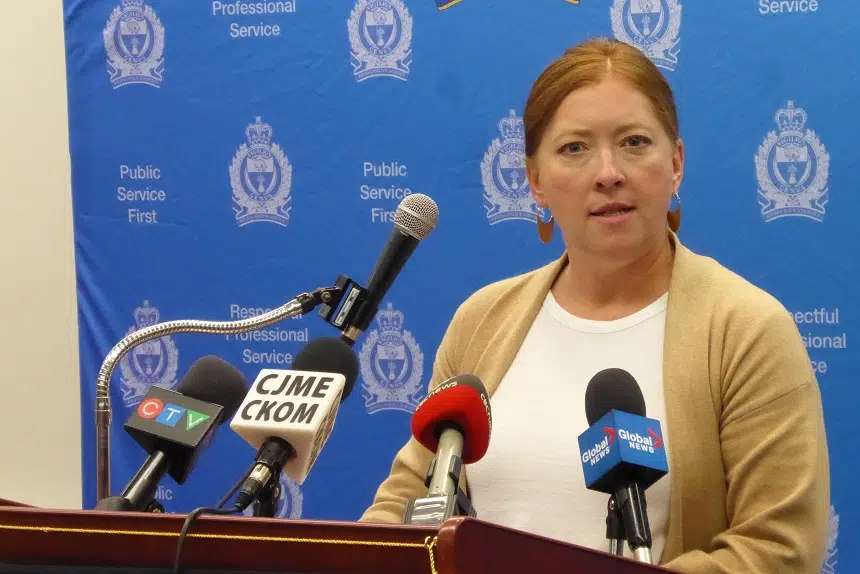As of this summer, there will be a lot more scrutiny put on the Regina Police Service and how it deals with sexual assault cases.
The provincial government announced on Monday that it’s providing $122,000 in funding to the police service for a new pilot project on the Philadelphia Model.
“I think it’s safe to say this is something that I expect that you will see all throughout Canada eventually, and I’m very proud that we’re on the front end of it,” said Chief Evan Bray.
The model was first developed in Philadelphia and involves experts from the community who deal with sexual violence regularly reviewing sexual assault cases. They’ll bring a criteria and checklist to ensure investigations were done properly and thoroughly.
According to the province, when the model was used in other cities, it resulted in cases being reopened which had previously been classified as unfounded.
Bray said he saw a presentation on the Philadelphia Model a few years ago, and when he got the opportunity, he put up his hand to bring it here.
“I thought it sounded really good, I was quite interested in it, and then when I heard there was some momentum in Canada and that they were looking to have a pilot in each province I thought, ‘Well, this fits perfect with the improvements that we’re already making,’ ” said Bray.
Members of a panel will come in every quarter to review the sexual assault cases the service has closed without charges, whether they were deemed unfounded or otherwise. Bray estimated that, from 2018 numbers, that could be between 25 and 30 cases each quarter. Historical cases will not be reviewed, though Bray didn’t rule out the service learning things that it then goes back and applies to previous cases.
The Regina Sexual Assault Centre will be a big part of the model. Lisa Miller, executive director of the centre, said sexual assault is a very personal crime and, as a society, we struggle to talk about it and people have a hard time coming forward.
“Those first interactions with, whether it’s police or advocates or family members or friends, have a big impact on how (victims) feel about moving forward, feeling believed,” said Miller.
Miller thinks if victims know the centre is involved, that could help them be more comfortable in coming forward.
According to Miller, most of the people the centre sees don’t end up going to police. Bray said holding the perpetrators accountable is key to eradicating sexual violence in the community.
“And I think this is just one more step that brings comfort to victims — knowing that there’s a thorough investigative process wrapped around a good support process with our community partners to make sure it’s done properly,” explained Bray.
Miller said this will send a message to perpetrators as well.
“It’s not just the centres like ours advocating for change, but it’s larger social structures that are starting to recognize that this has to be fixed,” Miller said.
Bray expects the project to give good feedback to help officers improve, but also that it will make investigations better in general. He pointed to the fact that an officer will know his work on a case will be reviewed.
Bray expects the first meeting of the pilot’s panel to take place in July. The program will last 17 months and Bray hopes it will prove worthwhile and will continue on.











